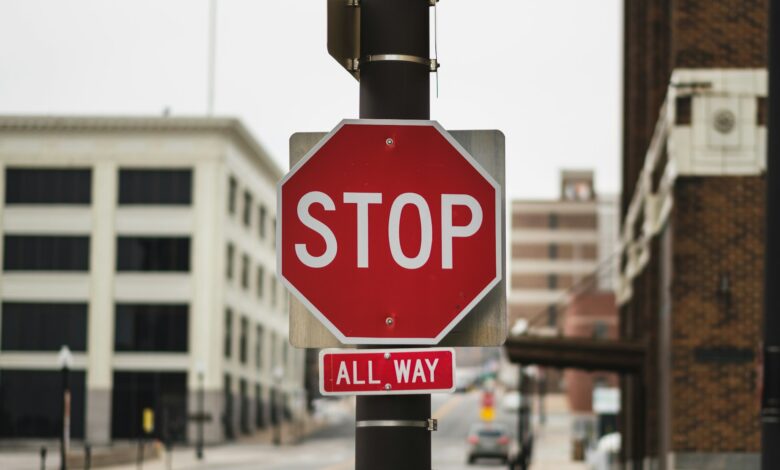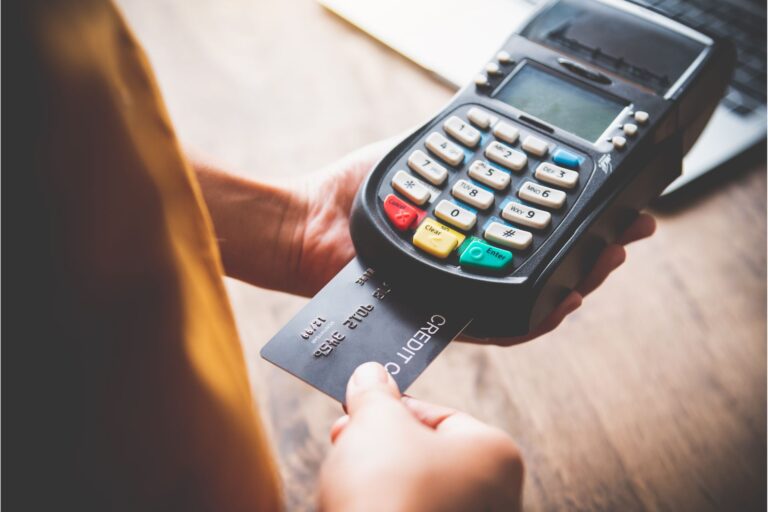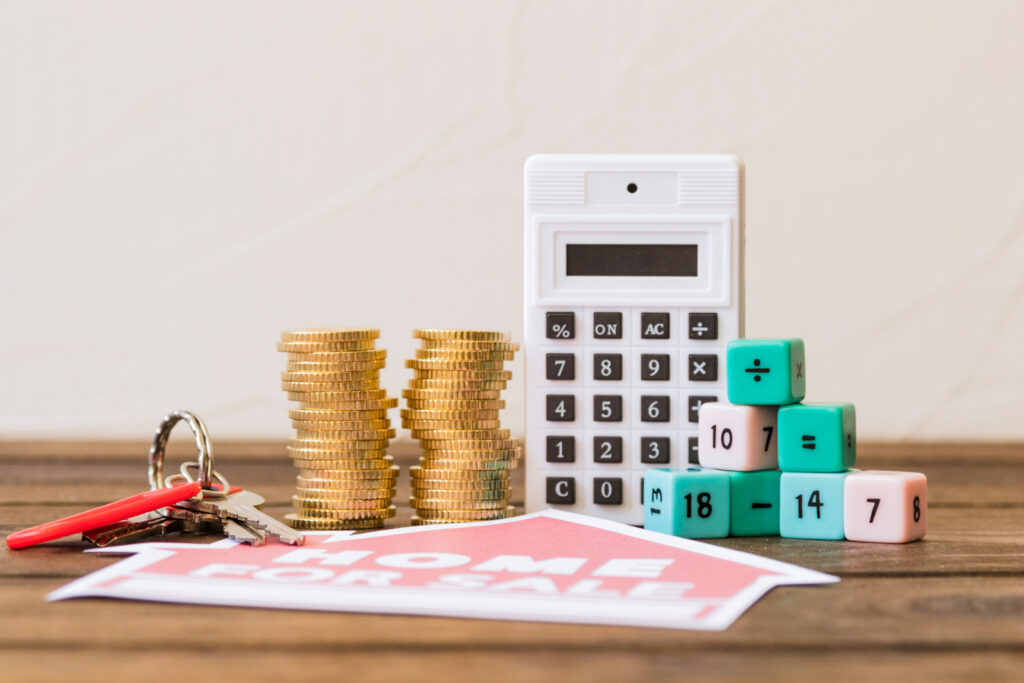10 Things You Shouldn’t Do When You’re Broke (And How to Fix It)

Let’s be real for a second. Being broke sucks. There’s no sugar-coating it. When your bank account is running on fumes and payday feels like it’s a million years away, everything feels heavier.
Your stress levels shoot through the roof, and suddenly that $5 coffee seems like a luxury you can’t afford.
But here’s the thing: being broke doesn’t have to be permanent. What keeps most people stuck in that cycle isn’t just the lack of money. It’s the habits they keep repeating that drain whatever little cash they have left.
I’ve been there, staring at my account balance wondering how I’d make it through the month, and I learned the hard way that certain behaviors will keep you broke faster than anything else.
So grab a cup of coffee, and let’s talk about the things you absolutely need to stop doing if you’re serious about turning your financial situation around. Trust me, your future self will thank you.
Why Do People End Up Broke?
Before we jump into what not to do, let’s talk about how people get into this mess in the first place. Understanding the root cause is half the battle, right?
1. Stacking Up Debt
Debt is like that annoying friend who never leaves your house. It shows up uninvited and makes itself comfortable on your couch. The worst part? Ignoring it only makes it grow bigger and more obnoxious.
Whether it’s credit card debt, student loans, or that car payment that seemed reasonable at the dealership, debt has a sneaky way of piling up. And when you’re only making minimum payments, you’re basically throwing money into a black hole thanks to interest rates.
Here’s what you need to do: sit down and face your debt head-on. I know it’s scary, but you can’t fix what you won’t acknowledge. List out everything you owe, from biggest to smallest.
Then pick a payoff strategy that works for you. Some people swear by the debt snowball method (paying off smallest debts first), while others prefer the avalanche method (tackling high-interest debt first).
The key is to start somewhere. Even an extra $20 toward your debt each month is better than nothing.
2. Failing To Build A Budget
You know what’s wild? Most people have no clue where their money goes each month. They get paid, pay some bills, buy some stuff, and then wonder why they’re broke two weeks later.
Living without a budget is like trying to drive cross-country without a map or GPS. Sure, you might eventually get somewhere, but you’ll probably get lost, waste gas, and end up frustrated.
A budget isn’t about restricting yourself. It’s about giving every dollar a job before it leaves your account. When you know exactly how much is going to rent, groceries, savings, and yes, even fun money, you stop making those impulsive purchases that wreck your finances.
Whether you get paid weekly, biweekly, or monthly, creating a budget is non-negotiable if you want to stop being broke. There are tons of free apps out there that make this super easy. Find one that clicks with you and stick with it.
3. Not Saving Money
I’ll never forget the time my car broke down and I had exactly $47 in savings. Talk about a wake-up call. That repair cost me $800, which I had to put on a credit card, and it took me months to pay off.
Not having an emergency fund is like walking a tightrope without a safety net. One unexpected expense and boom, you’re in financial crisis mode. And life loves throwing curveballs: medical bills, car repairs, job loss, broken appliances. The list goes on.
Financial experts recommend having 3-6 months of expenses saved up. If that sounds impossible right now, start small. Even $500 in an emergency fund can be a game-changer. Set up automatic transfers from your checking to savings, even if it’s just $25 a paycheck. You won’t miss what you don’t see.
4. Living Above Your Means
Here’s a truth bomb: you can’t afford everything you want, and that’s okay. Living above your means is basically spending money you don’t have to impress people you don’t even like. Sounds ridiculous when you put it that way, doesn’t it?
I’ve seen people making six figures who are still broke because they upgraded their lifestyle every time they got a raise. Bigger house, fancier car, designer clothes. Meanwhile, plenty of actual millionaires drive 10-year-old cars and shop at regular stores.
The secret to building wealth isn’t making more money (though that helps). It’s spending less than you earn and investing the difference. Period.
5. Not Making Enough Money
Sometimes the math is simple: if your income barely covers your basic needs, you’re going to struggle no matter how well you budget. And that’s not your fault. Wages haven’t kept up with the cost of living, and that’s a whole other conversation.
But here’s the good news: you have more control over your income than you think. The gig economy has opened up tons of opportunities to make extra cash. Got a skill? Freelance it. Good at something? Teach it. Have extra time? Find a side hustle.
I’m not saying you need to work 80 hours a week forever. But temporarily increasing your income while you get your finances sorted can be the difference between staying broke and building wealth. Check out platforms like Upwork, Fiverr, or even local Facebook groups for opportunities.
10 Things You Shouldn’t Do When You’re Broke
Alright, now for the main event. These are the habits and behaviors that will keep you broke if you don’t cut them out. Some might sting a little, but remember, we’re keeping it real here.
1. Using Credit Cards

Look, I’m not going to tell you that credit cards are evil. They’re not. Used responsibly, they can help you build credit and earn rewards. But when you’re broke? They’re basically financial dynamite.
The problem is that credit cards make it way too easy to spend money you don’t have. That $50 dinner doesn’t feel like real money when you’re swiping plastic. But it is real money, plus interest if you don’t pay it off immediately.
When you’re struggling financially, credit cards can quickly spiral out of control. You use them for necessities, then you can’t pay the full balance, so you get hit with interest charges. Next month, you’re even more broke, so you use them again. It’s a vicious cycle.
Here’s my advice: if you don’t have the cash in your bank account, you can’t afford it. Put the credit cards away until you’ve got your finances under control. Switch to cash or a debit card. It hurts more to hand over actual money, which means you’ll think twice before spending.
2. Ignoring Your Accounts

Ignorance might be bliss, but it’s also expensive. Not checking your bank accounts regularly is like driving with your eyes closed and hoping for the best.
I get it. When you’re broke, looking at your account balance is depressing. But avoiding it doesn’t make the problem go away. In fact, it usually makes things worse.
You need to know exactly what’s going on with your money. Check your accounts at least once a week (daily is even better). Look for:
- Unauthorized charges or fraudulent transactions
- Overdraft fees or other bank charges
- Subscriptions you forgot about and don’t use anymore
- Errors like being charged twice for the same purchase
- Your actual available balance before making purchases
Banks and merchants make mistakes. I once caught a gym charging me even though I’d cancelled my membership three months earlier. That’s $90 I would have lost if I hadn’t been paying attention.
Most banks give you a limited window (often 30-60 days) to dispute charges. Don’t miss out on getting your money back because you were too scared to look at your account.
3. Making Big Purchases
Nothing screams “I want to stay broke” louder than dropping a huge chunk of money on something you don’t actually need. And yeah, I’m talking about that new iPhone when your current one works just fine.
Big purchases are tricky because they’re often emotional. That 65-inch TV is on sale! This laptop is 30% off! But here’s the reality check: a discount on something you can’t afford is still money you’re wasting.
Before making any purchase over $100, ask yourself these questions:
- Do I actually need this, or do I just want it?
- Will I still be happy about this purchase in a month?
- What else could I do with this money?
- Am I buying this because it’s on sale, or because I genuinely need it?
This is where having a budget becomes your best friend. If it’s not in the budget, you don’t buy it. Simple as that. And if it’s something you really need, save up for it instead of putting it on credit.
Trust me, that temporary shopping high isn’t worth the long-term financial stress.
4. Playing The Lottery

Okay, let me hit you with some math real quick. Your odds of winning the Powerball jackpot are about 1 in 292 million. You’re literally more likely to get struck by lightning. Twice. In the same day.
Yet people who can least afford it spend hundreds or even thousands of dollars a year on lottery tickets, hoping to hit it big. I’ve seen folks at the gas station dropping $20 on scratch-offs while complaining they can’t afford groceries. That’s not a financial strategy; that’s desperation.
Let’s say you spend just $5 a week on lottery tickets. That’s $260 a year. Over 10 years, that’s $2,600 that could have been sitting in a savings account or invested. And that’s assuming you only spend $5 a week.
I’m not saying never buy a lottery ticket. If you’ve got your finances in order and want to spend $2 on a ticket for fun, go for it. But when you’re broke, the lottery is not going to save you. Hard work, smart decisions, and time will.
5. Eating Out Every Day

This one hits different because food is emotional, right? After a long day, the last thing you want to do is cook. I totally get it. But eating out regularly is one of the fastest ways to drain your bank account.
Let’s do some quick math. Say you spend $12 on lunch every workday. That’s $60 a week, $240 a month, or $2,880 a year. Just on lunch! Add in a few dinners and weekend meals out, and you’re easily spending $5,000+ annually on restaurant food.
Now, I’m not saying you can never eat out again. That would be miserable, and honestly, not realistic. But you need to seriously cut back when money is tight.
Here’s how to make this easier:
- Start small. If you eat out 7 days a week, cut it down to 4-5 days
- Meal prep on Sundays so you have ready-made food during the week
- Keep your meals simple. You don’t need to be a gourmet chef
- Pack your lunch the night before so you’re not tempted to order out
- Allow yourself one “treat” meal out per week as a reward
Cooking at home can save you thousands of dollars a year. And honestly? Once you get into the rhythm, it’s not that bad. Plus, homemade food is usually healthier anyway.
6. Avoiding Work

I know someone who quit their job at 28 because they were “tired of the grind” and wanted to “find themselves.” Noble idea, except they had $3,000 in savings and no plan. Guess how that worked out? Spoiler alert: not well.
Look, I’m all for early retirement. The FIRE movement (Financial Independence, Retire Early) is awesome. But you know what makes it work? Years of saving aggressively and investing wisely. You can’t retire early when you’re already broke.
Your income is the foundation of everything else. It’s how you pay bills, save money, pay off debt, and build wealth. Without it, you’re dead in the water.
If you hate your job, I feel you. But the answer isn’t to quit with no backup plan. The answer is to keep working while you figure out your next move. Use that steady income to save up an emergency fund, pay off debt, and maybe build a side business that could eventually replace your job.
Work might not be fun, but being broke and unemployed is way worse. Trust me on this one.
7. Spending Too Much On Nails And Hair
Ladies, we need to talk. And before you come for me, I’m not saying you shouldn’t take care of yourself or look good. You absolutely should. But dropping $150 on your hair every month when you can’t pay your electric bill? That’s a problem.
I know there’s pressure to maintain a certain look. Social media doesn’t help with everyone showing off their fresh nails and perfect hair. But here’s the thing: most of those people are either in a better financial position than you, or they’re just as broke and making terrible decisions too.
When you’re struggling financially, expensive salon visits need to be the first thing to go. And I’m not talking about never getting your hair done again. I’m talking about finding more affordable options:
- Look for beauty schools where students practice on real clients at huge discounts
- Learn to do basic maintenance yourself (YouTube is free!)
- Stretch out the time between appointments
- Find a less expensive salon that still does good work
- Skip the extras like fancy treatments and stick to basics
Your financial security is more important than having perfect nails. Real talk.
8. Going On Elaborate Vacations
Ah yes, the “I deserve a vacation” trap. I’ve fallen into this one myself. You’re stressed about money, work is exhausting, and you just want to escape. So you book a trip you can’t afford because “you only live once,” right?
Wrong. Well, the YOLO part is true, but going into debt for a vacation is not living your best life. It’s setting yourself up for months of financial stress that far outweighs a week of fun.
Here’s the brutal truth: if you have to put your vacation on a credit card or take out a loan, you cannot afford that vacation. Period.
But I’m not a total monster. I know everyone needs a break sometimes. So here are some alternatives:
- Take a staycation and explore your own city like a tourist
- Go camping or have a road trip to somewhere nearby
- Visit friends or family in other cities (free accommodation!)
- Look for off-season deals in less popular destinations
- Save up specifically for a vacation over several months
If you really want that dream vacation to Bali or wherever, make it a goal. Calculate what it would cost, then save a specific amount each month until you can afford it without going into debt. That trip will feel so much better when you’re not stressing about the credit card bill afterward.
9. Being Unproductive
When you’re broke, sitting around feeling sorry for yourself is the worst thing you can do. I know it’s tempting to just zone out with Netflix and pretend your problems don’t exist, but that doesn’t pay the bills.
Being broke requires action. You need to be constantly looking for ways to improve your situation. That might mean:
- Learning new skills that could increase your income
- Applying for better-paying jobs
- Starting a side hustle
- Selling stuff you don’t need
- Taking online courses to advance your career
- Networking with people who might have opportunities
Every hour you spend being unproductive is an hour you could have spent improving your financial situation. And I’m not saying you can’t relax or have downtime. You absolutely need that for your mental health. But there’s a difference between healthy rest and avoiding your responsibilities.
Set goals for yourself. Even small ones. “This week, I’m going to apply to five jobs” or “I’m going to list 10 items on Facebook Marketplace.” Then actually do it. Progress, not perfection.
10. Grocery Shopping While Hungry

This one seems silly compared to the others, but hear me out. Shopping while hungry is a budget killer, and I learned this the hard way.
I once went to the grocery store absolutely starving after work. I had a list, but everything looked amazing. I ended up spending $180 when I’d budgeted $100. And half the stuff I bought? I didn’t even need it. Those fancy crackers and three different types of ice cream? Yeah, not on my list.
When you’re hungry, your brain goes into survival mode. Everything looks good, and your willpower goes out the window. You’ll justify purchases you’d never make on a full stomach.
Here’s how to avoid this trap:
- Always eat before you go shopping, even if it’s just a snack
- Make a detailed list and stick to it religiously
- Set a budget before you walk in the store
- Use a calculator app to track your total as you shop
- Avoid shopping when you’re tired or stressed (also leads to bad decisions)
I know it seems like a small thing, but these impulse purchases add up fast. An extra $20-30 per shopping trip is $80-120 a month. That’s real money that could be going toward your emergency fund or paying off debt.
Final Thoughts
Being broke is temporary if you make it temporary. The key is stopping the behaviors that keep you stuck in that cycle. Cut out the unnecessary expenses, stop pretending you have money you don’t, and get serious about changing your situation.
Living below your means isn’t fun, but it’s necessary when you’re trying to get your finances back on track. That doesn’t mean living miserably. It means being intentional with every dollar and prioritizing your financial security over temporary pleasures.
And while you’re cutting expenses, don’t forget the other side of the equation: increasing your income. Look for side hustles, ask for a raise, switch to a higher-paying job, or start a small business. The fastest way out of being broke is to attack the problem from both sides.
Remember, every financially successful person you admire started somewhere. Many of them were broke at some point too. The difference is they made different choices and stuck with them long enough to see results.
You’ve got this. Start with one thing from this list. Just one. Master that, then move on to the next. Small changes add up to big results over time.
Your future self (with a healthy bank account) is going to be so proud of the decisions you’re making today. 🙂








